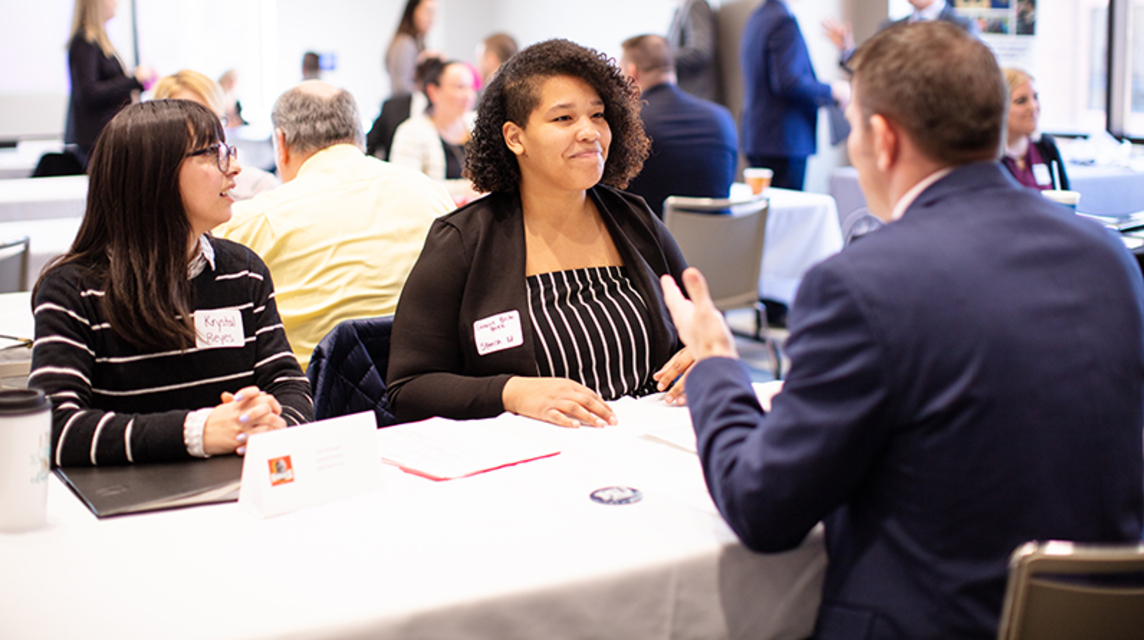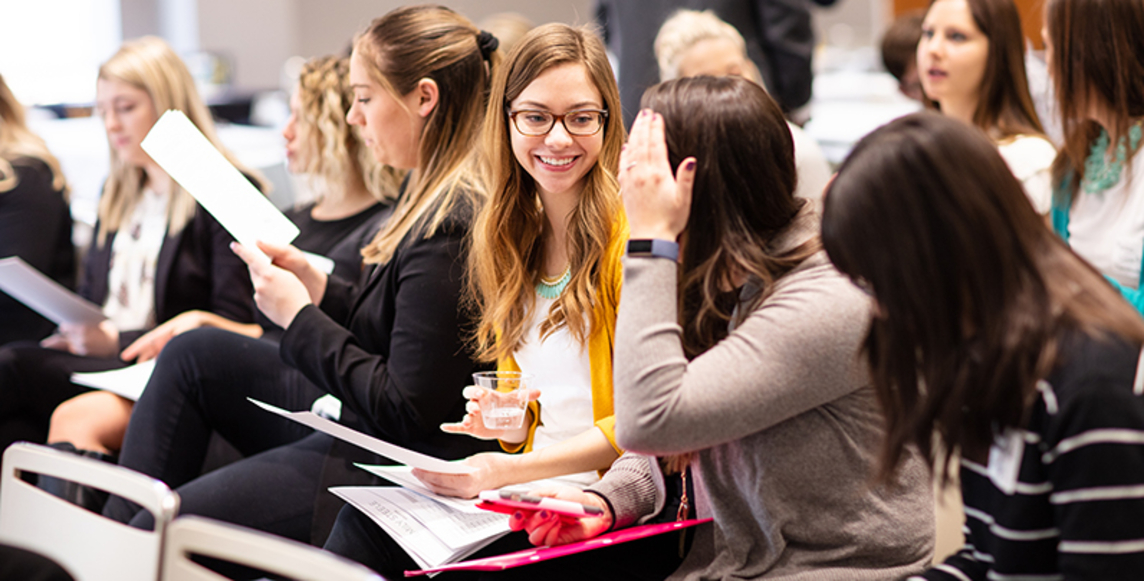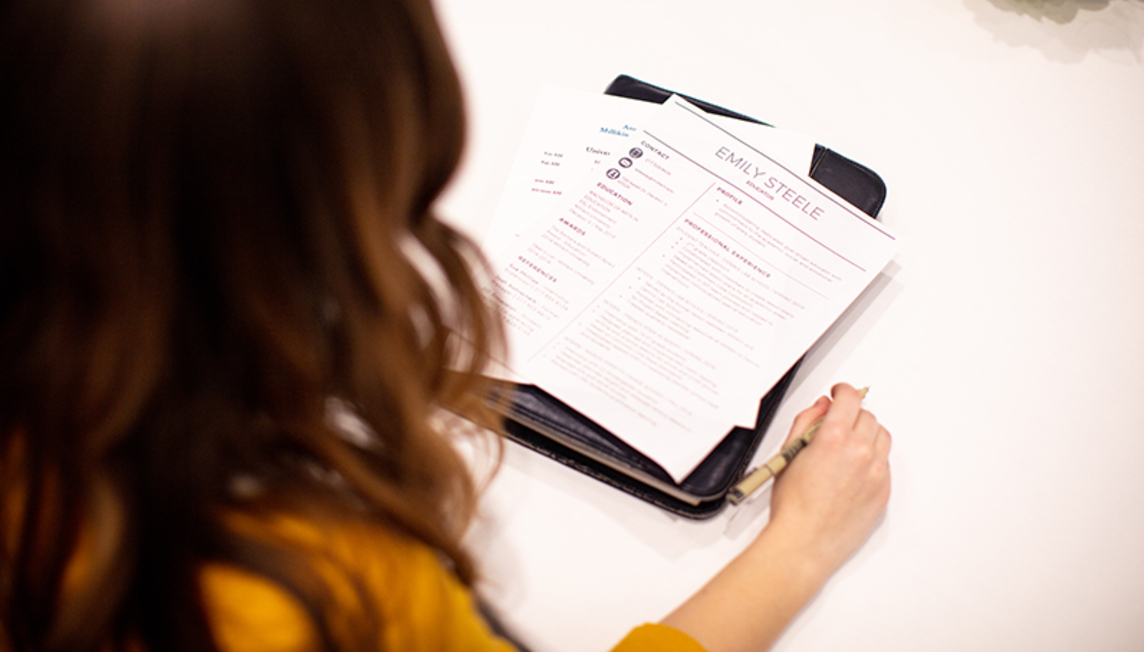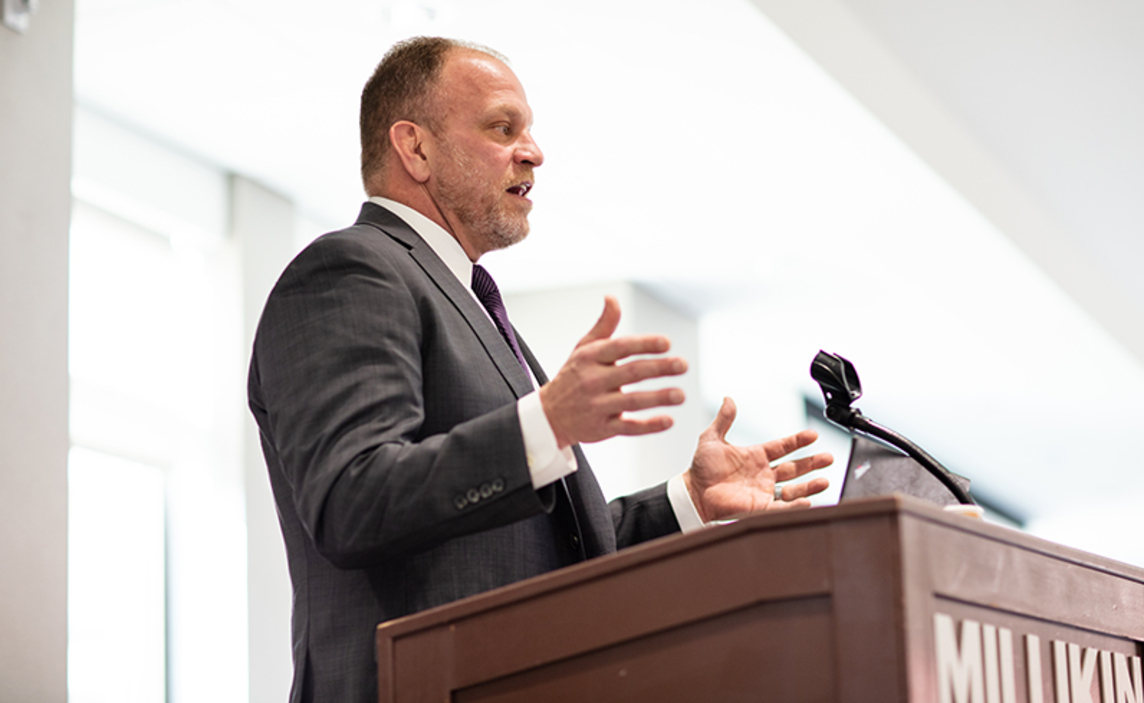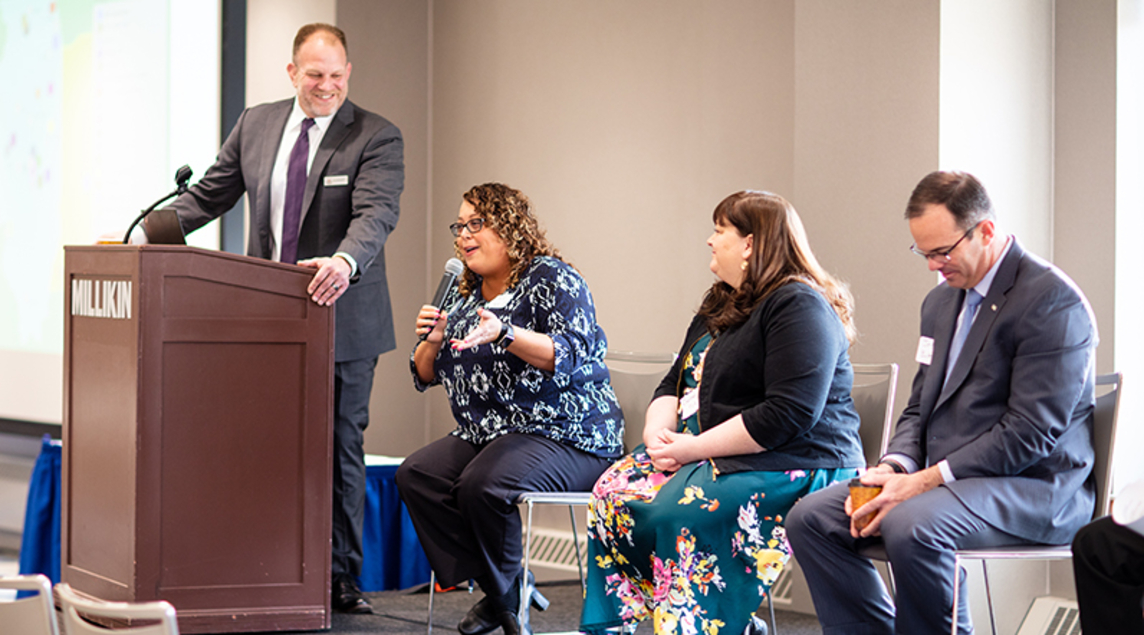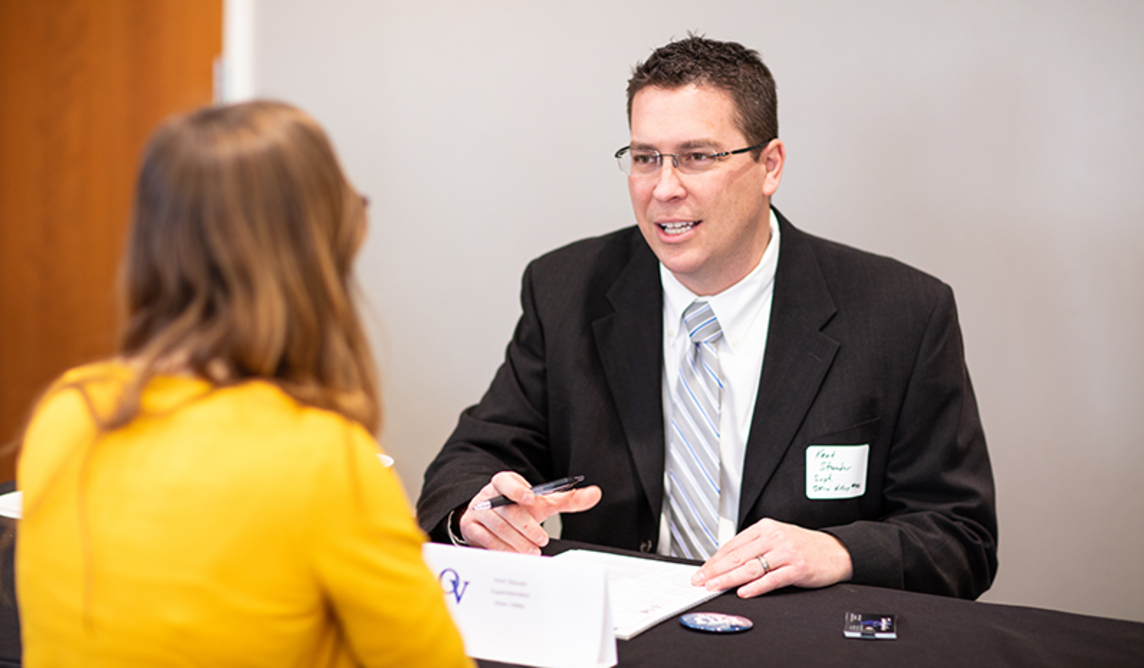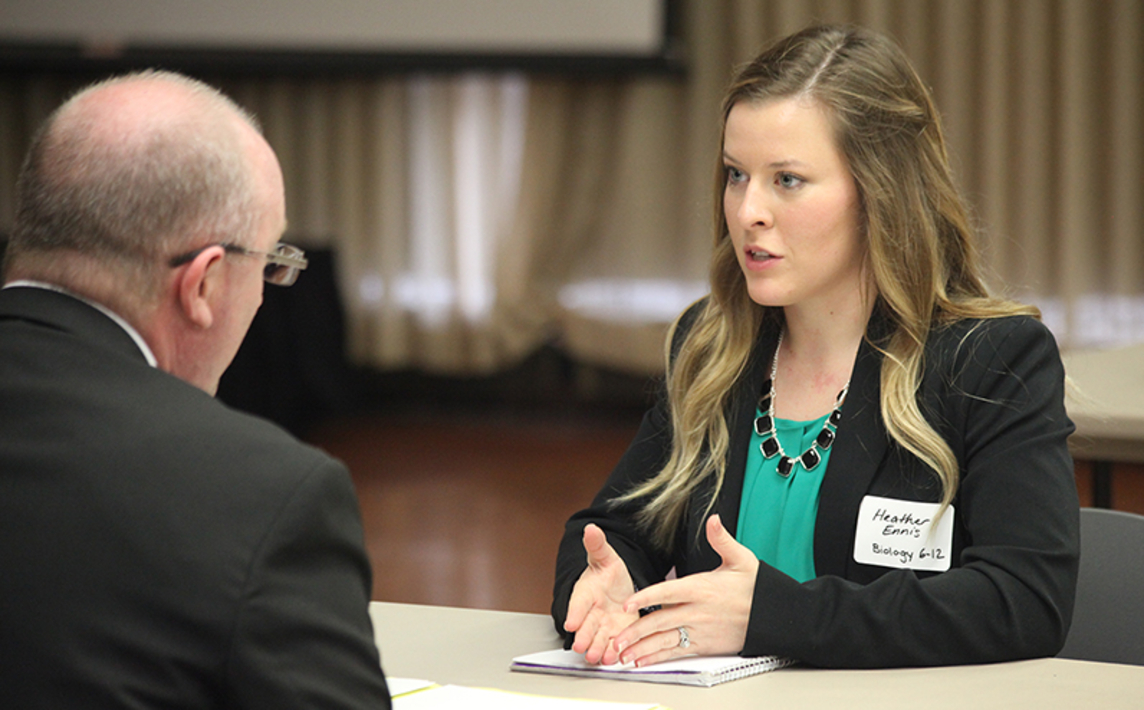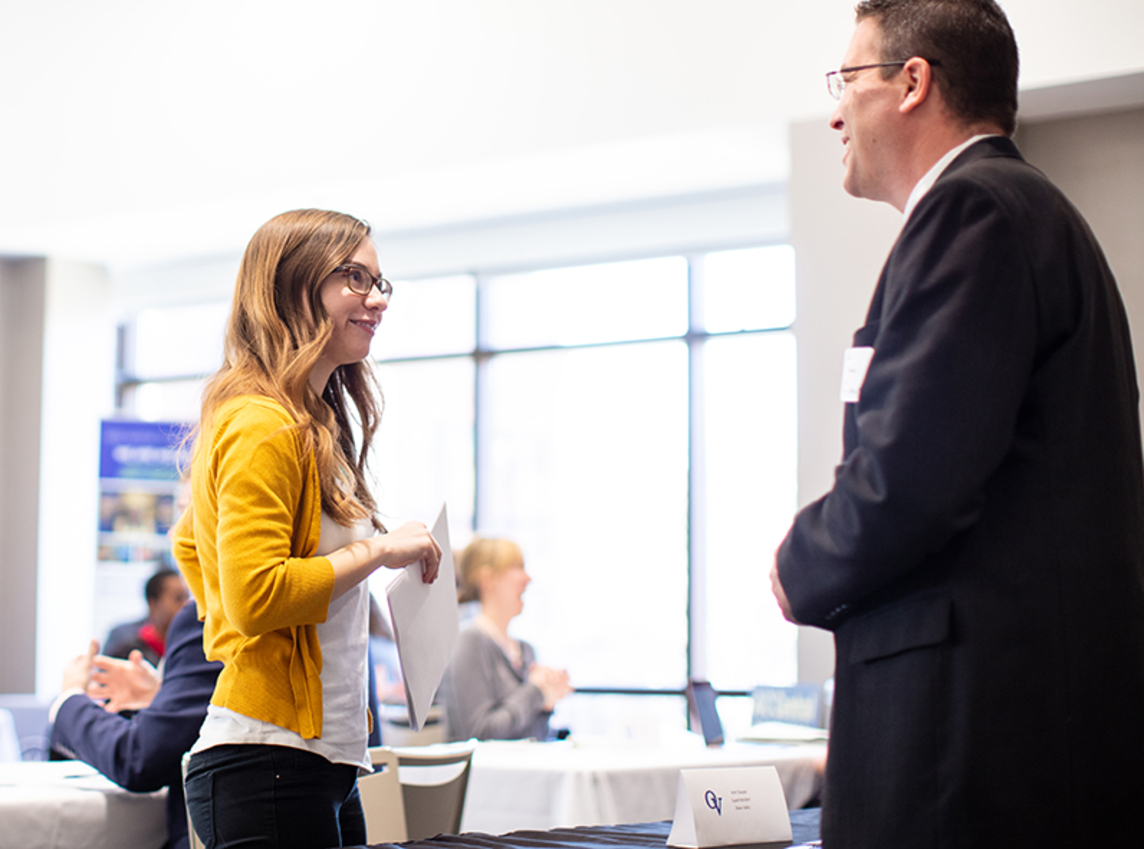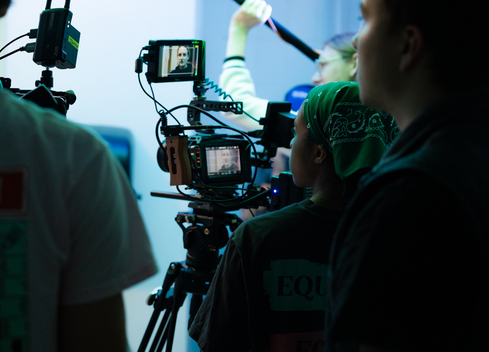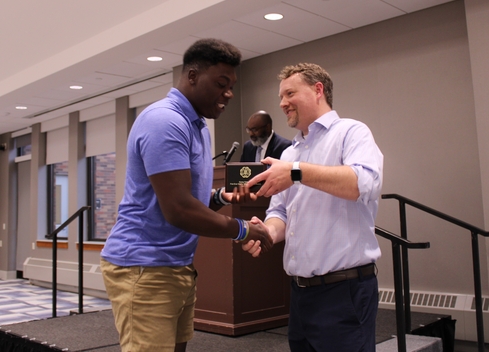Teacher candidates experience first job interviews
For the last few years, we've taken an inside look at Millikin University's annual Interview Boot Camp, hosted by the Millikin School of Education, by capturing the experience as seen from faculty and alumni who coordinate the event.
This year, we decided to take a different approach by following the student perspective of the mock interview process – from the preparation to the final handshake.
Several of Millikin University's education majors, who hope to become teachers, were given an opportunity to practice their interviewing skills during the 7th Interview Boot Camp held on Feb. 26 in the University Commons.
Here's how it works. Over 20 Millikin graduates, who are currently serving as school principals and superintendents from across Illinois and Indiana, came back to campus to interview students. The alumni helped the students prepare for what to expect in actual interviews while at the same time providing feedback – some students even landed a job that day. The event was started by the alumni as a way to give back in their own way to Millikin.
Mock interviews are a great way to learn how to answer difficult questions, develop interview strategies, improve communication skills and reduce stress before an actual job interview. We caught up with Emily Steele, a senior elementary education major and a soon-to-be entry-level teacher candidate, to see how she handled the job interview process.
Q: What are your thoughts as you prepare for your first interview?
ES: I'm very excited – it's a great opportunity to prepare us. These are real superintendents and principals, and it's a real experience, but I'm not as nervous going into interviews for jobs that I'm picking.
Q: What questions do you think the superintendents and principals might ask?
ES: I've been preparing by asking my cohort and different people at the school I student-teach at the kinds of questions they might ask. I'm prepared to learn more about the culture of the school, what they are looking for in a teacher, and getting feedback. As teachers, we love feedback and this is a good opportunity for that.
Q: What level of teaching are you hoping to enter?
ES: Elementary education. I love 1st through 3rd grade – that is my focus.
Q: Why did you decide to become a teacher?
ES: I had a great experience in high school where instead of taking a study hall I went into a kindergarten classroom and helped out, and that solidified it for me. That was when I knew I wanted to be a teacher.
Before the interviews began, the Millikin alumni hosted a panel discussion on topics such as the common challenges during the first year of teaching; the differences when considering employment at large or small school districts; what stands out about great hires; and advice about the use of social media for teachers.
Tom Mahoney '90 of the Oregon, Ill., school district, moderated the panel while Julie Fane '06 of French Academy, Baby TALK representative Courtney Kirk '09, Jeff Butts '92 of the Alsip, Ind., school district and Potomac elementary school district representative Larry Maynard '88 addressed the future teachers.
"There's a lot going on during your first year of teaching, but prepare to be flexible and prepare to build your support system strong," said Fane. "It takes time to maintain a balance and to take care of yourself."
Jeff Butts noted, "Teaching is not a job, it's a calling. We want you to be coachable, but we are also looking for candidates who will contribute to the field and be innovative."
Emily Steele's interview was with Kent Stauder '02, superintendent of Okaw Valley Community School District 302.
Q: How was the interview?
ES: It went well. I felt comfortable talking with him and getting some of my questions answered, and also getting feedback on what they will be really asking in an interview.
Q: Were there any questions asked that you didn't expect?
ES: There were some questions I was ready for such as my personal experiences and my style of teaching. There was one question on a classroom management software system that I wasn't familiarized with. The interview felt faster than it was.
Q: What sort of feedback did the superintendent provide after the interview?
ES: He said I did a good job of focusing on the positive which is something I try to do during interviews. It's good to always fall back on 'if you don't know something, focus on something you do know.' He reminded me to play up my strengths.
Q: What do you hope to bring to the table as a teacher?
ES: I want to be someone who is compassionate and understands the importance of building relationships with students because to me that is the foundation of learning – if it's not there, then the students are not going to learn what you want them to. It's important to build and maintain those relationships so the students can grow and flourish.
Dr. Christie Magoulias, director of the School of Education, says the one common denominator for the Interview Boot Camp that the students and alums share is Millikin.
"They don't use gloves with the students," said Dr. Magoulias. "They give them tough feedback, but what they all have in common is Millikin, so it's a safe place. Whatever feedback they give them comes back softer, even if it's tough."
